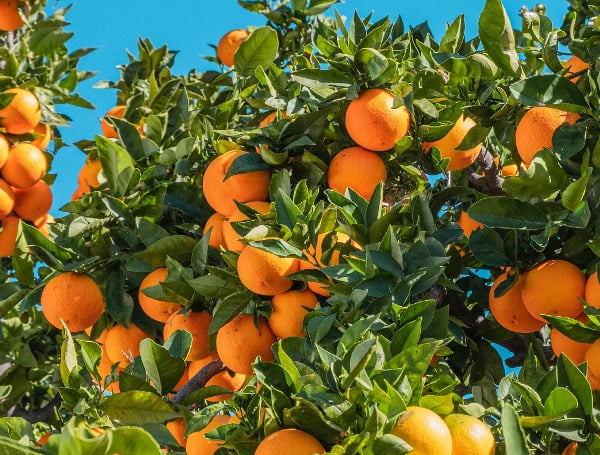U.S. Representative Greg Steube (R-Fla.), alongside Rep. Daniel Webster (R-Fla.), reintroduced The U.S. Citrus Protection Act on Friday, aiming to safeguard American citrus farmers by banning the importation of commercially produced fresh citrus fruit from China. The legislation seeks to protect U.S. agriculture from high-risk, pest-laden imports that threaten domestic growers and food security.
“Florida citrus farmers are a cornerstone of U.S. agriculture. Every year, the Sunshine State delivers fresh produce and countless byproducts that feed America and the world. Yet, foreign adversaries flood our markets with high-risk citrus imports, threatening the livelihood of American farmers and their families,” said Rep. Steube. “Grocery stores in America should be stocked with oranges, tangerines, grapefruits, and other fruits harvested right here in the United States. My bill prioritizes U.S. growers by banning citrus imports from China, ensuring Florida farmers come first.”
READ :Florida’s Citrus Industry Faces Further Decline As Production Forecast Drops Again
Rep. Webster echoed Steube’s concerns, emphasizing the importance of protecting Florida’s agricultural heritage. “Florida’s citrus growers have fed Americans for generations and remain a cornerstone of our state’s agricultural economy,” Webster said. “For too long, China has flooded the market with risky imports, threatening American farmers and food security. The U.S. Citrus Protection Act puts American agriculture first and ensures that we are not dependent on foreign adversaries for our food supply.”
Florida’s agricultural sector is a powerhouse, with approximately 44,400 farms and ranches spanning over 9.7 million acres. The industry contributes significantly to the state’s $1.2 trillion economy, generating $8.88 billion in annual sales. In 2023, Florida led the nation in the production of key crops, including floriculture, Valencia oranges, sugarcane, watermelons, and sweet corn.
The reintroduction of The U.S. Citrus Protection Act comes amid growing concerns over the impact of foreign imports on domestic agriculture. Chinese citrus imports have been criticized for introducing pests and diseases that could devastate U.S. crops. By prohibiting these imports, the bill aims to protect American farmers from unfair competition and ensure the safety and quality of citrus products available to consumers.
READ: Florida Rep. Steube Intros Bipartisan Bill To Make Swimming Lessons Eligible For HSAs And FSAs
The legislation has garnered support from agricultural advocates who argue that it is a necessary step to preserve the integrity of U.S. food systems. “This bill is about more than just protecting farmers—it’s about protecting American families and ensuring they have access to safe, high-quality food grown right here at home,” said one industry representative.
As the bill moves through Congress, it is expected to face debate, particularly from those who advocate for free trade. However, Steube and Webster are confident that the legislation will gain bipartisan support, emphasizing its importance to national food security and the economic well-being of American farmers.
For Florida’s citrus growers, the stakes are high. The state’s iconic orange groves and citrus industry have faced numerous challenges in recent years, from hurricanes to disease outbreaks. The U.S. Citrus Protection Act represents a critical effort to level the playing field and ensure that Florida’s farmers can continue to thrive.
Please make a small donation to the Tampa Free Press to help sustain independent journalism. Your contribution enables us to continue delivering high-quality, local, and national news coverage.
Connect with us: Follow the Tampa Free Press on Facebook and Twitter for breaking news and updates.
Sign up: Subscribe to our free newsletter for a curated selection of top stories delivered straight to your inbox.

